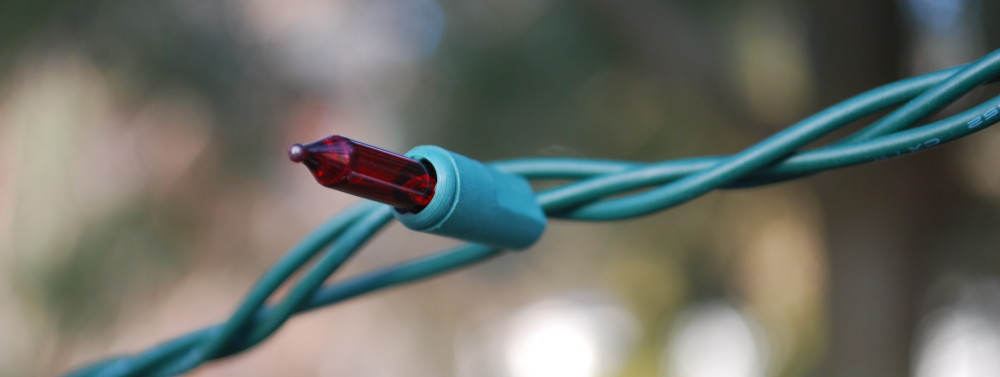While normally you may only inspect your roof once or twice every year, if you plan on hanging Christmas lights this holiday season, you should be prepared to check on your roof more often.
As beautiful as they are, the holiday lights that adorn our window frames and roofs can be extremely hazardous. Just this month, on Nov. 3, a home in Beloit, Wisconsin was set aflame by worn-out Christmas lights.
On that evening, the Beloit City Fire Department responded to a call regarding a small fire on the home’s exterior. By the time they’d arrived, the fire had scorched the siding of the home, causing $5,000 worth of damage to the building.
Corroded wires of the family’s Christmas lights lit a spark, igniting the home’s exterior. Luckily, no one was hurt.
When decorating your home this holiday season, it’s imperative that you go through the following checklist to make sure that your lights are safe for hanging.
- Check all of your light strands before hanging them. If you see any fraying, cracks, loose connections, or rust, you should not hang these up. Instead, dispose of them and purchase new ones.
- If you’re setting up a real Christmas tree inside, make sure that it’s well-watered. The U.S. Fire administration reports that about 250 Christmas tree fires and 14 Christmas tree fire-related deaths occur every year due to excessively dry conditions. Watering your tree regularly will also keep it looking green and well-kept.
- Check the dates on your lights. Newer lights have fuse plugs that prevent sparks if your light strand short circuits. If your lights don’t have fuses, you are at risk of a short-circuiting fire. Replace them immediately.
- Be sure to check your outdoor lights for water, dirt, or other debris that can easily make its way into outdoor sockets. If you see any, do not plug in the lights, replace the bulbs right away, and clean the sockets with an all-purpose cleaner — no water! When your lights are clean, plug them into a ground fault circuit interrupter to prevent shocks.
- Check on your extension cords often. They can easily overheat, so give them a light touch intermittently to make sure that they have not become warm. If it has, unplug it immediately.
- Avoid using conductive hanging tools like nails, screws, or tacks. Instead, use insulated hooks.
- If you live in a snowy area, be sure to elevate the plugs of your extension cords with a brick. This will keep moisture and debris out of your sockets.
- Whenever you buy new lights, check to make sure that they have received a rating by the Occupational Safety and Health Administration.
- Do not use indoor lights for outdoor use. Indoor lights often have thinner insulation, as they do not need to weather harsh elements. When used outside, these can become cracked and damaged, causing hazardous conditions and leaving your home prone to fire.
- While holiday lights look great at night, make sure that you unplug them when you go to bed or leave your home. It is not safe to leave lights unattended, as the family from Beloit found out just this year.
While there is still time left before most decorations go up, be sure to double-check all of your lights to ensure that you and your home will be safe this coming season.

No comments yet.